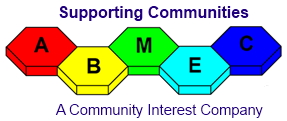Information and resources
for Cambridgeshire residents
ABMEC C.I.C. Compass House, Vision Park,
Chivers Way, Histon, Cambridge, CB4 9AD
Telephone: 01223 257 700 Registered Co. No. - 6096631
This web site is designed, hosted and the content supported by Thirdsectorweb.co.uk
Part of the SmithMartin Partnership LLP - an ethical practice, delivering community partnerships
ABMEC Translation here
Celebrating Poland
Images Wikimedia Commons: Gydnia - Tomasz Kolowski, Bison - Lite, Dunajec and Lesnica - Kristo
Poland i/ˈpoʊlənd/ (Polish: Polska), officially the Republic of Poland (Polish: Rzeczpospolita Polska; Kashubian: Pòlskô Repùblika; Silesian: Polsko Republika), is a country in Central Europe, bordered by Germany to the west; the Czech Republic and Slovakia to the south; Ukraine, Belarus and Lithuania to the east; and the Baltic Sea and Kaliningrad Oblast, a Russian exclave, to the north.
The total area of Poland is 312,679 square kilometres (120,726 sq mi), making it the 69th largest country in the world and the 9th largest in Europe. Poland has a population of over 38 million people, which makes it the 34th most populous country in the world and the sixth most populous member of the European Union, being its most populous post-communist member.
Poland is a unitary state made up of 16 voivodeships. Poland is a member of the European Union, NATO, the United Nations, the World Trade Organization, the Organisation for Economic Co-operation and Development (OECD), European Economic Area, International Energy Agency, Council of Europe, Organization for Security and Co-operation in Europe, International Atomic Energy Agency, G6, Council of the Baltic Sea States, Visegrád Group, Weimar Triangle and Schengen Agreement.
The establishment of a Polish state is often identified with the adoption of Christianity by its ruler Mieszko I in 966, over the territory similar to that of present-day Poland. The Kingdom of Poland was formed in 1025, and in 1569 it cemented a long association with the Grand Duchy of Lithuania by signing the Union of Lublin, forming the Polish–Lithuanian Commonwealth.
The Commonwealth ceased to exist in 1795 as the Polish lands were partitioned among the Kingdom of Prussia, the Russian Empire, and Austria. Poland regained its independence as the Second Polish Republic in 1918.
Two decades later, in September 1939, World War II started with the Nazi Germany and the Soviet Union invasion of Poland. Over six million Polish citizens died in the war. Poland reemerged several years later within the Soviet sphere of influence as the People's Republic in existence until 1989.
During the Revolutions of 1989, 45-year long communist rule was overthrown and the democratic rule was re-established. That gave foundations to modern Poland, constitutionally known as the "Third Polish Republic".
Despite the vast destruction the country experienced in World War II, Poland managed to preserve much of its cultural wealth. There are currently 14 heritage sites inscribed on the UNESCO World Heritage list in Poland.
Since the end of the communist period, Poland has achieved a "very high" ranking in terms of human development.
Source: Wikipedia

